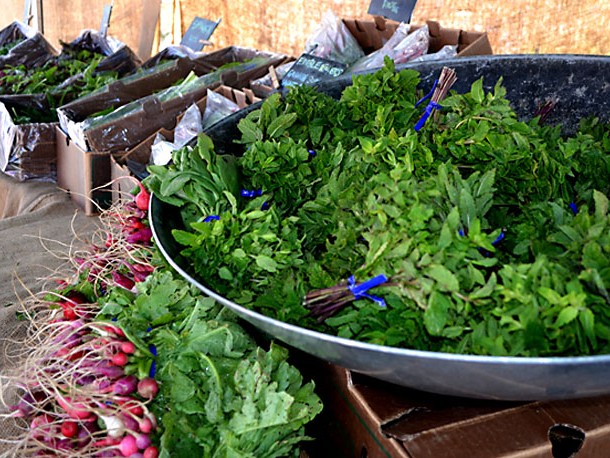Have you ever wondered if you could be a vegetarian?
If you have ever wondered if you could become a vegetarian, it’s very simple. There are so many resources, books, web sites, cooking classes and experienced vegetarians willing to assist you. You’re lucky considering this lifestyle change in the present day. In the 70s and 80s it was much more challenging to find healthy choices for vegetarian meals. Eating out was a challenge; grilled cheese sandwiches and cheese pizza became the vegetarian’s best friend. For vegans, it was plain baked potatoes and a salad. Now it’s easier because almost all restaurants offer at least one vegetarian dish. On the few occasions where I’ve found myself at a place that didn’t, the chef was willing to create a delicious dish for our dining experience. Just make sure to ask.
Making the Change to a Vegetarian Diet
When you decide to be a vegetarian, you may be concerned about getting enough protein. It’s not as challenging as you think, as everything you eat—even fruits and vegetables—have protein in them. It’s just learning what foods have higher amounts of protein such as grains, dairy, beans, nuts and seeds.
Some people become vegetarian instantly. They totally give up meat, fish and poultry overnight. Others make the change gradually. Do what works best for you.
Being a vegetarian means different things to different people. Some people consider themselves vegetarian if they don’t eat meat, but they still consume eggs, dairy and occasionally fish. There are different levels of being a vegetarian, but strictly speaking, vegetarians are people who don’t eat meat, poultry, or seafood. If you are a vegetarian you can eat beans, nuts, seeds, grains, vegetables and fruits as well as milk and dairy products but not eggs.
But people with many different dietary patterns call themselves vegetarians.
The Different Types of Vegetarians
- Vegan – Only eat a plant-based diet. They don’t eat gelatin (made from horse hooves) or honey as they don’t want to harm the bees. Most vegans don’t wear animal products, like leather, either.
- Lacto-Vegetarians – Eat a plant-based diet and dairy. They do not eat meat, poultry, fish or eggs.
- Lacto-Ovo-Vegetarians –Eat a plant-based diet and dairy including eggs. They do not eat meat, poultry or fish.
- Ovo Vegetarians – Don’t eat meat, poultry, fish, or dairy products, but do eat eggs.
- Pesco-Vegetarians – Avoid meat and poultry but may eat fish.
Healthy Veggie website provides support for all levels of vegetarians with a focus on Vegan and Lacto-Vegetarians. Personally I’m in-between the two. I’m primarily a vegan but do eat honey and dairy on rare occasions, but I try to avoid them as much as possible. I feel this is the most ethical diet as I don’t want any animal to give up its life to sustain my life.
There are many other reasons to become a vegetarian, for example, the environment. Being a vegetarian is greener and healthier for our planet. It takes more land, water and energy to raise cattle, chicken, goats, lambs, and pigs for meat than to grow plants for food. According to the Audubon Society, roughly 70 percent of the grains grown and 50 percent of the water consumed in the United States are used by the meat industry. Raising animals for food is one of the leading causes of pollution and resource depletion today.
Currently our oceans are being depleted of fish and marine life due to overfishing. I live in San Francisco, California where we have the two largest ocean mammal rescue facilities in the world. I was recently told by a close friend that volunteers at both facilities how dire our situation is becoming. In previous years, they rescued around 80 baby seals and sea lions annually. They pick up the greatest numbers in August timeframe and scientists have determined that the primary cause is due to malnutrition of the mother. They need to feed or risk dying so they have to leave their young and return to the ocean. This year, 2013, the mammal rescue center acquired 1,200 marine babies by the end of April due to depletions of herring and anchovies off the coast of California.
The following is an interesting article published by Yahoo that outlines that by 2050 everyone may be forced to go vegetarian due to a lack of resources: World may be forced to go vegetarian by 2050, scientists say.
Going Vegetarian for Health Reasons
Researchers have found that Vegetarians live longer. If you want to live longer or just feel better, pass on the meat and live on a plant based diet. A recent study concluded that vegetarians were less likely to die from heart disease, diabetes, or kidney failure than were those who ate meat.
The book and documentary “The China Study” by T. Colin Campbell and his son Thomas M. Campbell II was a 20-year study that started in 1983 and was a joint effort by the Chinese Academy of Preventive Medicine, Cornell University, and The University of Oxford. The study examined the relationship between diet and disease. The science is clear: a plant based diet can dramatically reduce your risk of cancer, heart disease, diabetes and obesity.
Harvard Medical School published an article from their findings: In July 2009, the American Dietetic Association weighed in with a position paper, concluding that “appropriately planned vegetarian diets, including total vegetarian or vegan diets, are healthful, nutritionally adequate, and may provide health benefits in the prevention and treatment of certain diseases” (Journal of the American Dietetic Association, July 2009).
Researchers don’t know why a plant based diet seems to have a protective effect, but one likely reason is the nutrient profile of vegetarian diets, which tend to be higher in fiber and lower in saturated fat. Vegetarians tend to be thinner, another factor known to have an affect on health outcomes. Over the past decade there has been more evidence showing that a plant based diet is the healthier choice.
Nutritional Requirement for a Vegetarian Diet
As a vegetarian there are a few nutritional areas that you need to be aware of to ensure you meet all the daily requirements. Shown below are the primary areas of focus.
Protein – Research shows that lacto-ovo vegetarians generally get the recommended daily amount of protein, which is easily obtained from dairy products and eggs. (Women need about 0.4 grams of protein per pound of body weight per day. Because the protein in vegetables is somewhat different from animal protein, vegans may need 0.45 grams of protein per pound of body weight per day.) There are many plant sources that can help vegans meet their protein needs, including peas, beans, lentils, chickpeas, seeds, nuts, soy products, and whole grains (for example, wheat, oats, barley, and brown rice). Vegetarians used to be told that they had to combine “complementary” plant proteins (rice with beans, for example) at every meal to get all the amino acids contained in meat protein. Now, health experts say that such rigid planning is unnecessary. According to the American Dietetic Association, eating a wide variety of protein sources every day is sufficient.
Vitamin B12 – Vitamin B12 is found only in animal products, but those products include dairy foods and eggs, so most vegetarians get all they need. If you avoid animal products altogether, you should eat foods fortified with vitamin B12 (certain soy and rice beverages and breakfast cereals) or take a vitamin B12 supplement to avoid a deficiency, which can cause neurological problems and pernicious anemia.
Iron – Studies show that in Western countries, vegetarians tend to get the same amount of iron as meat eaters. But the iron in meat (especially red meat) is more readily absorbed than the kind found in plant foods, known as non-heme iron. The absorption of non-heme iron is enhanced by vitamin C and other acids found in fruits and vegetables, but it may be inhibited by the phytic acid in whole grains, beans, lentils, seeds, and nuts.
Zinc – Phytic acid in whole grains, seeds, beans, and legumes also reduces zinc absorption, but vegetarians in Western countries do not appear to be zinc-deficient.
Omega-3 fatty acids – Diets that include no fish or eggs are low in EPA and DHA. Our bodies can convert ALA in plant foods to EPA and DHA, but not very efficiently. Vegans can get DHA from algae supplements, which increase blood levels of DHA as well as EPA (by a process called retroversion). DHA-fortified breakfast bars and soy milk are also available. Official dietary guidelines recommend 1.10 grams per day of ALA for women, but vegetarians who consume little or no EPA and DHA should probably get more than that. Good ALA sources include flaxseed, walnuts, canola oil, and soy.
Use HealthyVeggie.co as a resource to aid in your process of going vegetarian and don’t hesitate to contact us if you have questions.



 Vegetarian. Instructor. Traveller.
Vegetarian. Instructor. Traveller. 

